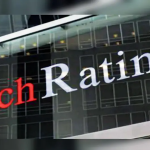The ongoing legal battle between First Bank of Nigeria (FirstBank) and General Hydrocarbons Limited (GHL) has captured the attention of bankers and legal practitioners across Nigeria, who see it as a potential template for tackling the complexities of loan recovery.
The case, marked by legal drama and intense negotiations, is being closely observed for its implications on the enforcement of court orders and the restructuring of non-performing loans.
The uncertainty centres on the financial implications and burdens associated with enforcing the administration of criminal justice, particularly in monetary matters such as this dispute between a financial institution and an oil and gas company.
Nairametrics previously reported that the Federal High Court, Port Harcourt Judicial Division, ordered the seizure of the entire cargo aboard the Floating Production Storage and Offloading (FPSO) vessel Tamara Tokoni, located in Rivers State and linked to General Hydrocarbons Limited.
The order followed a monetary claim application filed by FBN’s legal team.
This development adds another dimension to ongoing legal disputes in Lagos courts and arbitration proceedings related to GHL’s Oil Mining License (OML) 120.
A new era of loan recovery? Nairametrics spoke with several bankers and lawyers who requested anonymity due to the sensitivity of the issue.
According to a senior banker from one of the FUGAZ banks (FirstBank, UBA, GTBank, Access, and Zenith), the recovery of oil and gas loans has been an uphill battle.
The banker cited the intricate nature of loan agreements, particularly in the oil and gas sector, as well as the challenges associated with implementing court rulings.
“Many banks face obstacles when trying to enforce court orders, especially in cases involving large corporates or well-connected individuals,” the banker explained. “This ongoing case could set a precedent for how banks approach similar situations in the future.”
The stakes are high Data obtained by Nairametrics shows that Nigerian banks provisioned over N1.5 trillion in loan impairments during the first nine months of 2024, a figure that surpasses the total provisioning for 2023 and is more than triple the amount recorded in 2022.
Analysts believe a significant portion of these impairments stems from oil and gas loans that have become difficult to repay due to macroeconomic challenges.
Exchange rate woes and loan defaults At the heart of the crisis is Nigeria’s economic turmoil, exacerbated by the sharp devaluation of the naira over the past two years.The devaluation, coupled with rising interest rates and persistent inflation, has left many businesses struggling to service their debts.The oil and gas sector, which has historically accounted for a significant portion of bank loans, has been hit particularly hard.“Most of these loans were structured based on earlier exchange rates, and with the naira losing so much value, many borrowers simply cannot keep up,” a financial analyst explained.
“Banks are left holding the bag, and they’re becoming increasingly aggressive in their recovery efforts.”
FirstBank’s legal actions against GHL are a case in point.The bank, seeking to recover a substantial oil and gas loan, has escalated its efforts, culminating in arrest orders, warrants, and other legal measures.
The public nature of the case has added another layer of complexity, with observers debating the legal ramifications of such aggressive recovery tactics as well as the defensive tactics of the obligor.
Setting a precedent Lawyers following the case believe it could influence future interpretations of loan agreements and the enforcement of court rulings.
A legal expert noted that the case highlights gaps in Nigeria’s financial and judicial systems, particularly when it comes to protecting creditors’ rights.
“This isn’t just about GHL and FirstBank; it’s about the broader implications for financial contracts in Nigeria,” the lawyer remarked.
“If FirstBank succeeds, it could embolden other banks to adopt similar strategies. Conversely, if GHL prevails, it might push lenders to reassess how they structure their loans.”
In an exclusive interview with Nairametrics, Barrister Tunde Oyefeso provided insights into the use of Mareva injunctions by banks, describing them as a longstanding equitable remedy.
“Mareva injunctions are used where a matter is in court, and applicants realise that a defendant, who is supposed to pay money, has assets and is quietly removing those assets from jurisdictions where the court can exercise authority over them,” he explained.
He emphasized the financial implications for banks, highlighting that they operate primarily with investors’ funds.
“Don’t forget that banks operate with investors’ funds. These are monies from people who have invested in them. So, it is investors’ funds that turn around from time to time. A lot of banks use this process,” he said.
He referenced the notable case of GTBank vs. Honeywell Flour Mills, where Mareva injunctions were applied to freeze assets pending resolution, underscoring their significance in securing creditors’ interests.
Oyefeso further noted that loan recovery through the courts is often straightforward once financial institutions identify debtors’ assets.
“Often, they discover that the debtors or defendants have interests in other companies, which are allegedly being used to launder money outside the jurisdiction. Once they have that information, they will hold the money to ensure it belongs to them and to prevent the other party from moving it out of the country, where the court would not be able to issue a judgment against it,” he remarked.
The lawyer also touched on the role of the Central Bank of Nigeria (CBN) in recent policy changes.
“The CBN recently instructed all banks to increase their capital holdings. As a result, many banks are working on consolidation and ensuring they do not accumulate bad loans. AMCON [Asset Management Corporation of Nigeria] had been tasked with buying up these loans from banks and pursuing the debtors, but now the push is for banks to handle their recovery more aggressively.”
Oyefeso added that the case between FirstBank and GHL could set legal precedents, especially as laws evolve to address emerging financial and legal challenges.
“Since the law is not static, new clauses arising from this case and others will likely emerge. Lawyers generally look for ways to ensure a win-win situation—win-win for the bank so they can recover their money, and win-win for the company or individuals borrowing, so they can repay the loans.”
Speaking to Nairametrics, Opatola Victor Esq. highlighted the historical deference shown by Nigerian banks to large loan defaulters.
“Banks have always treated those they see as huge loan defaulters with some sort of deference and caution because of the significant amounts they have borrowed. Banks even sometimes help restructure the terms of the loan to ensure the defaulters have soft landings. Sometimes, banks end up writing off some of these debts as bad debts,” he noted.
However, he pointed out that the current case stands out for the extent to which FirstBank is pursuing recovery.
“First Bank is currently not pulling any legal stops to recover its perceived debt. From a court in Lagos to another in Port Harcourt, there may still be others in play,” he explained.
Opatola stressed that given the current economic challenges in Nigeria, the country might see an increase in more aggressive debt recovery measures.
“We may see more cases where banks seize or freeze debtors’ assets in other countries, not just Nigeria. This includes multi-jurisdictional litigations and judgment enforcement,” he observed.
For the oil and gas sector and the banking industry, he noted, “This current issue, coupled with the recent economic impact, will shape the risk appetite and legal strategies of many banks, companies, and debtors in the future.”
What this means As the case unfolds, it is clear that the outcome will have far-reaching implications for Nigeria’s banking and legal sectors.For now, all eyes remain on the courtroom, where the decisions made could redefine the rules of engagement for loan recovery.With millions of dollars at stake and the reputation of major institutions on the line, this is more than just a legal feud—it is a battle that could shape the future of Nigeria’s financial landscape.The coming weeks and months will reveal whether this case becomes a landmark ruling or just another chapter in the country’s long history of financial disputes.Either way, it is certain to leave an indelible mark on how banks, lawyers, and businesses navigate the complex terrain of loan recovery.





GIPHY App Key not set. Please check settings